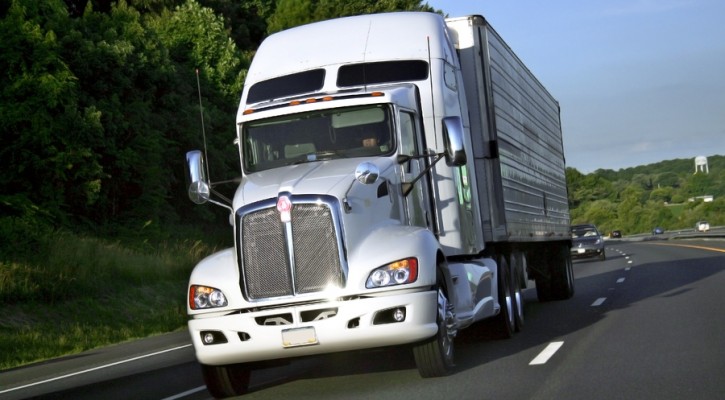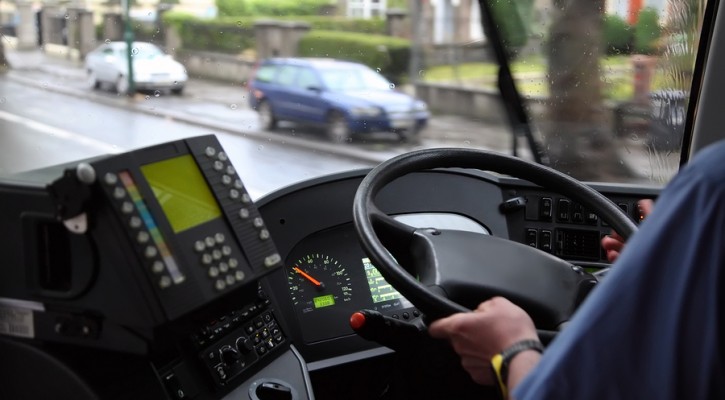
Truck Driving Companies: The Big Guys Vs the Little Guys
September 22, 2014
Truck driving companies are hiring all across the country. Big and small, these employers have seen a shortage of drivers lately and are in need of some fresh workers for their fleets.
New drivers should be aware of all the advantages and disadvantages that come with working for different companies. So, today we’ll cover some aspects of working for big truck driving companies vs. small truck driving companies.
The Skinny on the Bigs
Well-known reputations. If you do your research, it’s easy to find out exactly what to expect from big truck driving companies. Some of these companies have been around since the invention of the long-haul truck, and in that time they have acquired a certain reputation. Some are known for their excellent pay, benefits, flexibility, job security, working environment, and incentives geared towards safety or efficiency. Meanwhile others have acquired notorious reputations for mistreating, mismanaging, underpaying and even illegally overworking their drivers. In the age of Google, all it takes is a simple search to find out which big companies are worth your efforts.
Corporate environment. In the world of corporate employment, truck drivers are known not by their names or their faces, but by the numbers on their trucks. With thousands of employees to manage, there’s little time for bosses, managers and dispatchers to get to know their drivers… much less care about their personal lives or families. So, if you crave a friendlier, more personal work place then this type of employer may not be right for you.
Flexibility. Because larger truck driving companies employ so many drivers, it can be easier to work out a more flexible schedule or ask for extended time off when needed. When you are just 1/1,000 of the fleet, the company’s financial success doesn’t depend on you as much.
Working for the Little Guys
The Unknown. Small truck driving companies usually don’t have much of a reputation. Unless you personally know a former fleet driver or a current employee, it’s hard to find out much about these small-time employers. However, that doesn’t mean you shouldn’t give the little guys a chance. Just be sure to check with the BBB for any major issues, and don’t sign any contracts without carefully reading them first.
Close-knit companies. Since small truck driving companies usually employ less than a dozen or so drivers, it’s easy to get to know everyone at the job. You may even become close friends with your boss and fellow employees, hanging out after work and getting to know each others’ families. Working with a tight group of people can be pretty rewarding. At the same time, it can also present its own crop of issues. When everyone knows everyone, word gets around quicker. Things such as work life, family drama, pay raises, and scheduling can cause problems between friends, so it’s best to be careful about how you handle your working relationships.
Dependence. When there are only 10 or so drivers, you become an integral part of the fleet. The company really depends on you. For this reason, your good work will be more appreciated and your bigger mistakes won’t go unnoticed. It may also be more difficult to request time off of work, since losing just one driver for the day could have a huge effect on the bottom line.
When choosing between big and small truck driving companies, it all depends on what is best for you. Don’t get too hung up on the size of the company. Just keep these thoughts in mind as you compare more important job aspects such as pay rates, miles, hours, vacation and medical benefits.

CDL for Tankers: The X Endorsement
August 18, 2014
Are you one of the brave few that has what it takes to drive an atom bomb (aka tanker) for a living? If you think you can handle the duty of carrying 1,000+ gallons of liquid gas, then you’re a special kind of driver indeed. To become qualified for this job, you will need to obtain a Commercial Drivers License (CDL) and Haz Mat (“X”) endorsement.
The process is simple, really… OK, that’s a joke. It can actually be pretty tedious, but this is the first in a long line of challenges that any CDL-license holder must face.
First, find the local DMV (every state has at least one DMV per county) to figure out everything you will need to get started. Besides issuing licenses, the DMV also conducts eye tests, written tests, driving tests, paperwork validation, address changes, license renewals and education.
Next, find out if you are eligible to drive a tanker. Since tankers are mainly used for transporting hazardous materials, it makes since that you would need to demonstrate the knowledge and skills to drive a tanker, as well as pass the test for a Haz Mat (X) endorsement. In order to be eligible to apply for a CDL-X, you will have to:
- Be a minimum 18 years of age
- Have a valid USA passport or a valid residential status.
- Have a CDL license (If the CDL is from another state, then you must first surrender the CDL and apply for a new one in this state)
- Pass an eye exam.
- Provide documents including date of birth, place of birth, proof of legal presence, Social Security Number, etc.
- Submit the application forms and apply for the written test in case you are applying freshly
Once you find out if you are eligible to apply, make sure that you are both physically and mentally prepared for the job. You will have to pass both the CDL test (if not already a CDL-license holder), as well as the Haz Mat test. It is also mandatory to fill out the Security Threat Assessment application and submit it to the DMV before they proceed further.
Then, you will have to be prepared for the highly responsible task of driving a tanker for a living!
A Giant Drivers License Infographic
August 4, 2014
The fine folks at DMV Cheat Sheets have put together this big, giant infographic about every type of drivers license. Full of useful info, amazing facts, and answers to tons of questions, we think you’ll get a lot out of this fun fact-packed graphic.
Learn what your drivers license can do for you:
Back It Up: Tips for Truckers
June 17, 2014
The backing range at truck driving school is an amusing place to spend an afternoon. Watching new drivers master the difficult maneuvering of backing up is hilarious. However, if you are the new driver then it is downright nerve-wracking. It’s all going to be fine, though, especially with these helpful tips from TruckingTruth blogger, TruckerMike:

Do You Need a CDL For That?
June 14, 2014
If you want to be a trucker, then you will need a Commercial Driver’s License (CDL). But, what about a bus driver, taxi driver, or dump truck operator? What if you want to haul some livestock, or work for FedEx? The answer is not so simple. Since each state has its own licensing laws, drives will need to check with the local DMV website for their specific location. However, there are a few general rules that apply across the U.S.
You will need a commercial license to drive any of the following:
– Vehicles weighing more than 26,000 lb (11,793 kg) for commercial use
– Vehicles transporting quantities of hazardous materials that required warning placards under Department of Transportation regulations
– Vehicles designed to transport 16 or more passengers, including the driver

Emergency Braking
June 3, 2014
Most drivers never attempt to practice emergency maneuvers before they happen. However, knowing what actions to take in an unexpected situation can make a difference. This is especially true in the commercial driving industry. Whether you’re driving a company van or an 18-wheeler, it’s important to know what to do in case of an emergency, and if possible, to practice handling such a situation.
Emergency braking is one skill that many fail to master. Of course all good drivers know to how to maintain a safe following distance and to keep an eye on traffic far ahead, but sometimes that’s not enough. Pedestrians and wildlife can cross the road, or a collision can happen, or a distracted driver may cut you off and cause you to hit the brakes in a hurry.
If this happens, it’s important to know (in advance) whether your vehicle has conventional brakes or anti-lock brakes (ABS), and how to use them. Therefore, before driving any vehicle, you should check the owner’s manual to determine what type of braking system you will be dealing with.
With ABS. If you are driving a vehicle with ABS, then use this braking technique: Maintain firm and continuous pressure on the brake. Do not be alarmed by mechanical noises and/or slight pulsations.
Without ABS. If your vehicle doesn’t have ABS, then use this braking technique: Press and release the brakes repeatedly. This is called pumping the brakes, and will slow the vehicle while keeping it under control. If you simply slam on the brakes, they will lock the wheels and cause you to skid.
Knowing what type of brakes you have and how to use them can mean the difference between life and death. So be sure to check your owner’s manual and practice emergency braking techniques.
Medical Examinations
May 29, 2014
Besides the studying, the CDL test, the training and the job search, truck drivers must also pass a medical exam. However, due to a shortage of qualified medical examiners, this year may prove especially difficult. See the full story here:

Truck Driving Tips
April 14, 2014
This list of truck driving tips comes from a seasoned professional, and has some great insights to help new drivers break into the industry. The advice is invaluable for truckers in their first year of driving, with plenty of honest tips to keep newbies running smooth.
CDL for the Hearing Impaired
March 30, 2014
If you want to be a trucker and are deaf, hard-of-hearing or slowly losing your hearing capabilities, then you may still be able to get your Commercial Drivers license and become a truck driver in the U.S.
While the Department of Transportation (DOT) has previously required drivers to pass a hearing test, the National Association of the Deaf (NAD) may now be able to help you get your license even if you can’t pass the DOT’s hearing requirements. For more information, see the NAD’s information page on Commercial Driver’s Licenses.

Bus Driver Rodeo
March 30, 2014
In North Carolina, Charlotte Area Transit System (CATS) drivers competed in the annual bus rodeo. See the full story here:
http://www.wcnc.com/news/CATS-driver-compete-on-obstacle-course-253056171.html

